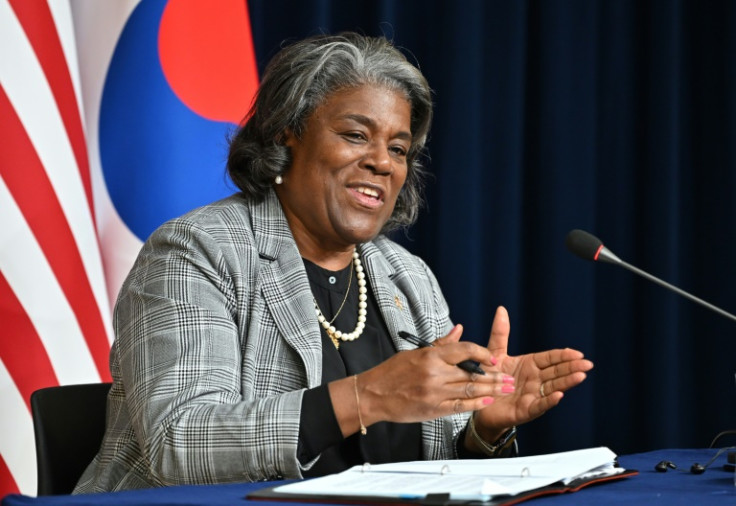
The US ambassador to the United Nations said Wednesday she believed sanctions were still an "effective tool" to discourage North Korea and its nuclear development, even as global enforcement of UN sanctions stumbles.
Linda Thomas-Greenfield arrived in South Korea on Sunday on a trip aimed at keeping up pressure on Pyongyang after Russia last month used its UN veto to effectively end UN monitoring of violations of the raft of sanctions on Kim Jong Un's regime.
Seoul and Washington say Kim has been shipping weapons to Russia, possibly in exchange for Moscow's technical assistance for Pyongyang's budding spy satellite programme.
Last year, North Korea conducted a record number of missile tests -- in defiance of UN sanctions in place since 2006 and despite warnings from Washington and Seoul -- having declared itself as an "irreversible" nuclear weapons state in 2022.
North Korea "does not want sanctions because they know these sanctions have hampered their ability to accomplish their goals," Thomas-Greenfield told reporters in Seoul Wednesday.
Sanctions are "an effective tool to discouraging countries from moving in the direction that the DPRK is moving in at the moment," she added, referring to North Korea by its official acronym.
She blamed countries like "Russia and Iran" for having "not implemented these sanctions in a way that will allow them to work as effectively as they can work."
Despite Moscow having effectively ended UN monitoring of violations of the raft of sanctions on Pyongyang, Thomas-Greenfield said a solution must be found to ensure that monitoring can continue.
"The point here is that we cannot allow the work that the panel of experts were doing to lapse," she said.
"We have to continue to keep eyes on and reporting on the illegal activities of the DPRK and efforts to break the sanctions that have been put in place."
During her visit to the heavily-fortified border between North and South Korea Tuesday, Thomas-Greenfield urged Pyongyang to return to talks.
She said Washington was collaborating with Seoul, Tokyo, and others to explore "some creative ways" and "out-of-the-box thinking" to ensure the continuation of monitoring activities.
"I will note here that the veto of the panel of experts does not veto the sanctions regime," she said Wednesday.
"That regime stays in place but we do need to continue to find a path on reporting."







